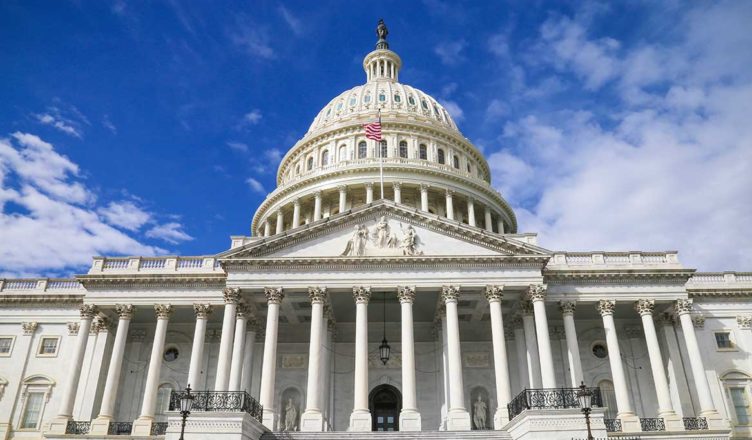Collectively, approximately 45 million Americans owe more than $1.56 trillion in total student loan debt (as of February 2019), more than double what it was a decade ago. The average monthly payment on those loans is just shy of $400, and approximately 11.5 percent of all borrowers are more than 90 days delinquent or in default on their student loans.
Clearly, the student loan debt crisis has grown larger than life—which shouldn’t be news to anyone who’s been paying attention for the past 20 years.
It seems that US politicians have finally gotten the memo, and are beginning to realize the seriousness of the problem.
In recent years and months, we’ve seen a wave of newly proposed laws and regulations designed specifically to tackle to student debt crisis. Though none of these proposals have passed into actual law, and though none of them is likely to pass into law within the next two years, each and every one of them has the potential to drastically reshape the way that Americans deal with student loans and the rising costs of a college education.
Below, we explore some of the most promising proposals so that you can be informed on the policies that matter most to you.
Student Loan Laws & Legislation
The list of proposed student loan laws and legislation below is meant to quickly educate you on a.) What the law does, b.) when it was proposed, c.) which lawmaker(s) proposed it, d.) it’s current status, and e.) what it would do if actually passed into law.
We will continue to update this list as new laws and legislation is proposed.
1. College For All Act
Sponsors: Sen. Bernie Sanders (I-VT), Rep. Pramila Jayapal (D-WA)
When it was proposed: April 3, 2017
Status: Stalled
What it would do: If passed, the College For All Act would aim to make college free for about 80 percent of American households. It would do this by eliminating tuition and fees at public four-year colleges and universities for families making $125,000 (or less) annually. Community colleges would be tuition- and fee-free for all.
The law would also aid existing borrowers through a number of actions:
- New federal student loans would see their interest rates cut in half, to less than 2 percent
- Existing federal student loans could be refinanced to the rates offered to new borrowers
- The federal government would be forbidden from profiting off of the student loan program
2. Debt-Free College Act of 2019
Sponsors: Sen. Brian Schlatz (D-HI), Rep. Mark Pocan (D-WI)
When it was proposed: March 22, 2018 (House), March 7, 2019 (Senate)
Status: Introduced to committee
What it would do: If passed, the Debt-Free College Act would establish a partnership between individual states and the federal government.
Under this partnership, the federal government would provide a dollar-for-dollar match to participating states who commit to help students pay for college without needing to take on debt. Students would receive need-based grants that they would use to pay for tuition, room and board, books and other supplies, and fees—avoiding the need for student loans.
The law would also:
- Provide Federal Pell Grant eligibility to DREAMer students
- Allow those who have been arrested for drug-related offenses to become eligible for student aid
3. Bank on Students Emergency Loan Refinancing Act
Sponsors: Sen. Elizabeth Warren (D-MA), Rep. Joe Courtney (D-CT)
When it was proposed: March 13, 2019
Status: Introduced to committee
What it would do: If passed, the Bank on Students Emergency Loan Refinancing Act would aim to create a student loan refinancing program available to borrowers of both federal or private student loans. (Currently, the only way to refinance federal student loans is to convert them into private student loans, which removes a number of borrower protections.)
This refinancing program would:
- Allow undergraduate student borrowers of private or federal student loans to refinance those loans at an interest rate of 3.76 percent
- Allow graduate student borrowers to refinance private or federal student loans at an interest rate of 5.41 percent
- Allow parent borrowers to refinance private or federal student loans at an interest rate of 6.41 percent
Senator Warren has introduced and reintroduced this bill a total of four times since 2014.
4. What You Can Do For Your Country Act
Sponsors: Sen. Kirsten Gillibrand (D-NY), Sen. Tim Kaine (D-VA)
When it was proposed: April 11, 2019
Status: Introduced to committee
What it would do: If passed, the What You Can Do For Your Country Act would drastically expand eligibility for the Public Service Loan Forgiveness Program (PSLF).
Currently, in order to qualify for student loan forgiveness under the PSLF program, borrowers working in certain professions need to meet a number of conditions. They must be enrolled in one of fours income-based repayment programs; they must make 10 years’ worth of on-time payments (120 payments); and only certain types of federal student loans qualify.
The law would make a number of changes to the forgiveness process:
- All federal student loans would be eligible for forgiveness, including Federal Family Education Loans (FFEL) which currently do not qualify
- All federal repayment plans would be eligible for forgiveness
- Borrowers could be eligible for forgiveness in as little as five years, down from the current ten years
- The Education Department would be required to provide more information to borrowers about how to qualify and apply for forgiveness
5. Employer Participation in Repayment Act
Sponsors: Sen. Mark Warner (D-VA)
When it was proposed: February 12, 2019
Status: Introduced to committee
What it would do: If passed, the Employer Participation in Repayment Act would encourage employers to help their employees repay their student loans.
Under current law, if an employer wants to help their employee repay their student loans, the contribution is taxed like income. This makes offering the benefit more expensive for employers, who more often than not simply choose to forego the option.
The Employer Participation in Repayment Act would amend the tax code, essentially reclassifying employer contributions to student loans so that they receive the same benefits as tuition reimbursement. This would allow employers to annually contribute up to $5,250 tax-free to help their employees repay student loans.
The Bottom Line
It’s starting to look like the 2020 presidential election will be the first election in modern US history that the student loan crisis will take center stage. Though we saw the beginnings of the movement in Sanders’ 2016 presidential election, it seems that every serious 2020 contender has their own position on how to deal with the crisis.
Be sure to check back regularly to see what new proposals are working their way through the legislative process!
Which student loan legislation do you most hope becomes law?






